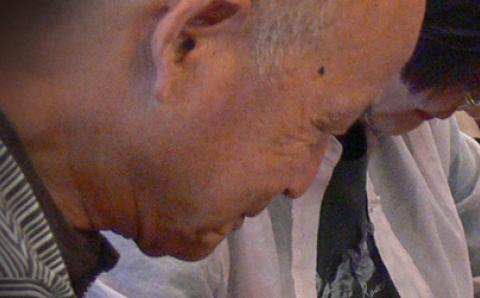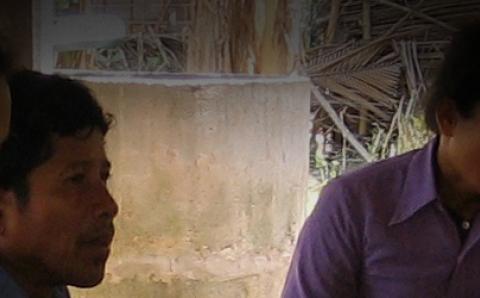“Who are you?” was his first question. I told him I was a pastor, and that his aunt, a member of my Ontario congregation, had asked me to visit him. “Why’d you come during visiting hours?” he demanded through the greasy phone. “I only get one visit a week, and now my mom can’t come this week.”
I apologized and asked if he would rather I didn’t come again. He shrugged and said it was up to me, but that clergy had visiting privileges outside of regular hours. If I came again, could I not take up his only time to see his mom?
The world beyond the scarred Plexiglas and clanging iron doors is home to too many (approximately 0.1 percent of Canada’s population on any given day, or around 35,000; about 0.7 percent of U.S. population, plus or minus 2,300,000), and one of the major industries globally.
Adria Libolt has penetrated that world for much of her life, beginning with tentative forays as part of her graduate research in education at the University of Michigan. Eventually she would manage several prisons for the Michigan Department of Corrections. Her book, A Deputy Warden’s Reflections on Prison Work (Resource Publications), is a must-read for all who wish to understand both the purpose and perils of prisons. With firm compassion, Libolt relates her encounters with penitents and devils, the mean-spirited and the lost, the tough and the tender. She explains the necessity for incarceration systems even as she undermines any presumptions that they “work” or that there is a correct way to handle our social nastiness.
William Stuntz gives an incisive academic portrait of crime and punishment in his magisterial swan song, The Collapse of American Criminal Justice (Harvard). The evangelical Christian and Harvard Law School professor, who challenged unfounded presuppositions about prosecution and punishment on all sides with grace and clarity, died last year at age 52. He left an assessment that no one who cares about these issues can overlook. Charting history and constitutional interpretation, Stuntz provides a few compelling nudges toward hope in what too many have experienced as the rotten underbelly of life.
Prison memoirs are often best-sellers, the richest of which find their way onto the screen because of their power and passion. A starter list includes the following:
- Sister Helen Prejean’s powerful Dead Man Walking: An Eyewitness Account of the Death Penalty in the United States (1993), which became the agonizing movie Dead Man Walking (1996).
- Alex Haley’s mechanical reproduction of Malcolm Little’s prison spiritual awakening in The Autobiography of Malcolm X (1965), eventually screened as Malcolm X in 1992.
- Ernest Gordon’s disturbing and exhilarating account of prisoner of war death camp life, Through the Valley of the Kwai (1962), summarized in the much overlooked 2001 movie To End All Wars. Unfortunately that film was eclipsed by the stunning news events of that year, though it is far more significant than the much fictionalized The Bridge on the River Kwai, which garnered seven Academy Awards.
We might add to these the rich tapestries of Stephen King, whose fiction contains so much compelling truth:
- Rita Hayworth and Shawshank Redemption> (novella, 1982); The Shawshank Redemption (movie, 1994).
- The Green Mile (serial book, 1996; movie, 1999).
In the end, however, prisons are personal and tragically all-encompassing in their grip on prisoners and their families. Libolt reminds us that no voyeurism through books or movies takes the place of personal engagement. That is why Chuck Colson started Prison Fellowship in 1976, and why Elmhurst Christian Reformed Church has forged direct links with Louisiana State Penitentiary (infamous as “Angola” or “The Farm”). Match2, begun in the state of Washington in 1964, connects inmates with visitors in response to Jesus’ command, and Crossroad Bible Institute, through its Michigan headquarters, provides study resources that pair volunteers with prisoners throughout North America and in more than a dozen countries worldwide. For a comprehensive list of opportunities and engagements, check out the International Directory of Prison Ministries (IDPM) at prisonministry.net. Most of all, pray for those in prison. And where possible, go visit Jesus there.
About the Author
Wayne Brouwer is a Christian Reformed pastor who teaches at Hope College and Western Seminary, both in Holland, Mich. His latest books are Martyr's Manual and Splitting the Day of the Lord.








